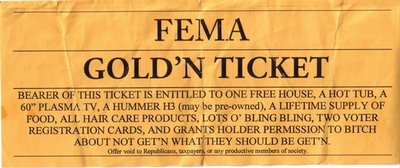Our Twentieth High School Reunion left me with three distinct impressions:
1. Everyone was so incredibly, sincerely NICE.
2. I am not as young as I used to be.
3. I miss people; I value something in relationships that may have meant little at the time. Shared history is shared life.
Is anything more fun than a reunion? Don't all our best memories involve getting together with old friends and family and talking about things and laughing about old times? Isn't a wedding (or in some cases, a funeral) more fun than dinner with the President? Wouldn't you trade front row seats to--whatever--for a chance to re-connect with all your old friends? I would. And my old foes.
And if relationships don't thrill you, consider the tremendous insight. After Sharpstown c/o 1986 had its ten-year reunion, I thought in addition to having so much fun, I had learned one thing valuable: All the cliches about nerds becoming rich and popular-people/jocks being poor are wrong. What a nerd or social misfit might do is probably no more predictable than the general population. But it looks like there IS a correlation between popularity and future job performance: many of them will be successful at whatever they do. After all, they became popular by having great people skills--not to mention being aggressive and competitive, or assertive at least. (And I do not speak to you as one of them, believe me.) After the twenty-year reunion, I can add another detail: almost every single popular male that I know is now in some form of sales, either hard or soft, cars or houses or intellectual property.
Another thing. The reunion was the most fun I have ever crammed into one evening. Like a mountaintop--with a valley, and I was sad it was over the next day. I also felt old, realizing in another twenty years, my daughter will have her own ten-year reunion! (Actually, a number of factors combined to make me feel old.) But mostly, I felt sad. Even though I was so very unhappy in high school, I miss the people--not who they were then, but who they are now, and our shared history. I daydream of a small town where people stay connected all their lives. Whether that ever existed, I don't know--but after the Industrial Revolution, it exists no more. (But then, neither does the yawning poverty that threatened everyone everywhere.)
The 20th was an absolutely huge, life-altering milestone. I am so glad I went.
Below is a series of e-mail messages between me and my very best high school friend. There was never any way he was going to go. But I think he's a bum for missing it. In my e-mails, I am trying to convince him that he actually is interested in the way all these people's lives have turned out. I want him to admit that he was lying when he said "I am just absolutely not interested." (I suspect he was unhappy with his appearance, among other things. I also suspect many no-shows were. There was only ONE person there with any gray hair--and we're all 38--and there were only a handful that had gained weight. That was too bad for all of us.)
(Some of you know this guy....)
Chris--
The reunion was a blast--in spite of how much I hated high school. Several have died. Half a dozen ladies were obviously on starvation diets. Chuck Wehner said you were a tool for not coming--he made me promise to pass that along. He said it affectionately. (Gawd, you were missed.) People asked about you and even about [your sister]. Guess who's a sheriff in Harris County? San Jacinto county? Guess who's a psychotherapist? Flight instructor, radiologist, dentist, and a whole lot of salesmen? Guess who brought his (male) life partner? Guess who had hair to his waist? Guess who came home from Kuwait for the reunion? Guess who got leave from his 20-year navy career? Guess who's been teaching and coaching at Sharpstown for 14 years? (You should know that one.) Guess who thought I was a Democrat just because of my job title? Guess who came from Minneapolis? Guess how many alumns live in Sugar Land? Guess who lives in Denver? Guess who owns two car dealerships?.... Guess who Paul said looked like "Fat Elvis" because of his weight gain? Guess which really popular guy gave me creepy vibes? Guess who suffers gout and has been seen doing yard work on crutches?
But I won't bore you with the details, seeing as how you said you weren't interested....
Steven
After this and other tantalizing messages, CW wrote back and admitted he actually was interested. But at the time, he "was not $120 interested." Victory! And I concede, the fee was ridiculous.
Today I got another message about the reunion--from a friend who was there. My reply:
. . . I have been SO distracted since the reunion. It was so much fun, and so weird at the same time. It's a special event, you know? Getting together after 20 years!? I wouldn't have missed it.
Funny thing, having seen you and Jeff F. both at the ten-year and the next day in Hermann Park, I felt like I had seen y'all just yesterday--and like I would see you again tomorrow. But of course, it's been a decade. But not as much has changed in the last ten years as in the first ten.
Still, it was great to see everyone. I just can't stop thinking about it. In the end, it's going to cost me a lot more than the $63 I paid to get in. Daydreaming is not billable....
I missed a lot of people too. Laura V., for example, married a childhood friend of mine from across town (we went to church together). I haven't seen Glen in 20 years either (though she came to the 10-year). Sorry Robert Munden couldn't make it. I seem to have tracked him down on the east coast somewhere, in a research firm of some sort. But it escapes me at the moment.
I also wonder about Jimmy K. I used to see him at HBU until he got a C in calculus or something and lost his academic scholarship. Then he was a bank teller for a while, but I've since lost touch. His name is common enough, I never even tried to look him up. (But now you've got me curious.) I just have to get back to work and try to stay focused! I can't afford too many reunions...
I looked up Kathy G. after I read she was deceased. Breast cancer in 2000. I had no idea.
It was great seeing you, once again. Thanks for the e-mail. Let's keep in touch.
Steven


